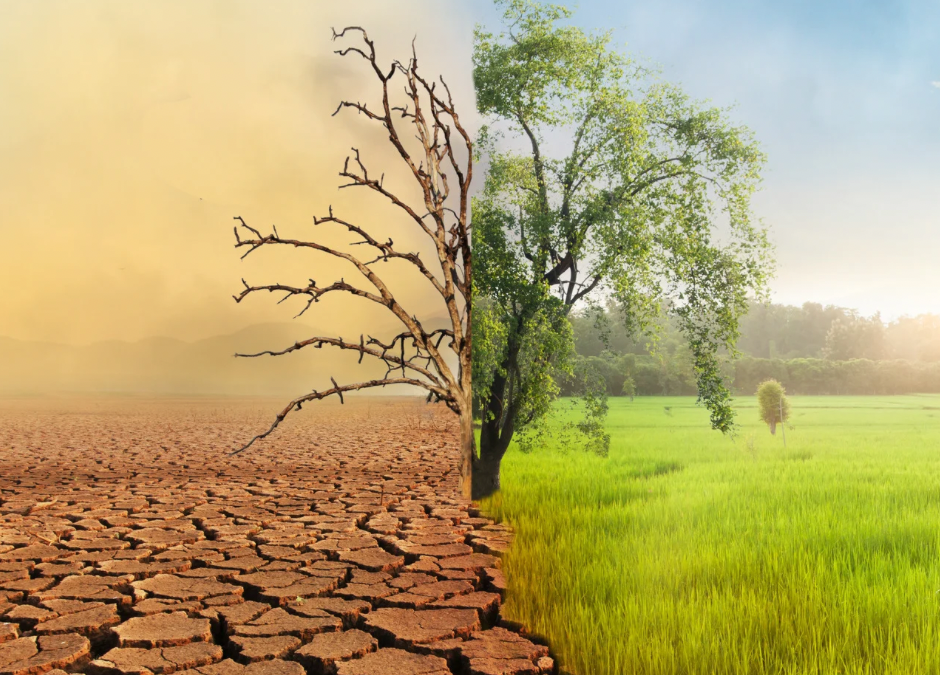
Commercial Awareness Update – W/C 14th October 2024
October 14, 2024
Mastering Problem Question Answers: A Guide for Law Students
October 17, 2024By Dikshya Adhikari.
Reading time: three minutes
In the escalating crisis of climate change and biodiversity degradation, it is often said that its impacts are universal, affecting all humans equally. However, this generalisation fails to recognise the stark reality that the burden of climate change disproportionately falls on those already marginalised and vulnerable. While those with access to resources and basic services may experience only minor disruptions, those on the peripheries of society, particularly Indigenous communities, are subjected to the full brunt of environmental degradation and extreme weather events.
It is a painful reminder that environmental disasters, far from being equalisers, exacerbate pre-existing inequalities. The marginalised are not just victims of the climate crisis but are often unjustly blamed for their methods of subsistence, as though their choices brought about the climate catastrophe. This blame is a manifestation of deep-seated environmental injustice, ignoring that indigenous peoples have long been stewards of the land, holding crucial knowledge on how to mitigate biodiversity loss and adapt to environmental shifts.
Indigenous peoples, the descendants of the original inhabitants of colonised lands, live in culturally distinct communities and hold an intrinsic connection to their natural environment. Globally, around 476 million individuals self-identify as Indigenous, constituting less than 5% of the world’s population. Despite their small numbers, they are spread across diverse regions, including the Americas, Asia, Africa, and Australasia. Indigenous communities have not only nurtured a spiritual bond with their lands but also a practical, centuries-old understanding of sustainable resource management.
Countries like Canada, Australia, and the United States have long witnessed indigenous communities defending their lands and natural resources against external exploitation. While the UK may not have a large Indigenous population, its vibrant environmental activist movements often include indigenous individuals advocating globally for the protection of Indigenous rights and environmental preservation from a climate justice lens.
In this context of profound injustice, the role of lawyers becomes pivotal. Lawyers are not mere interpreters of law but engineers of societal transformation. As architects of justice, they have a crucial role in addressing the disparities highlighted by the climate crisis. The United Nations’ 2030 Agenda for Sustainable Development envisions a world rooted in human rights, justice, and the rule of law—principles that necessitate responsible stewardship of natural resources. Lawyers, therefore, must embrace their position as social engineers, advocating for sustainable development and climate justice.
Read this article to find out how young lawyers can transform the legal landscape: https://thestudentlawyer.com/2024/03/28/how-young-lawyers-can-transform-the-legal-landscape/
Legal professionals can advance climate justice by actively engaging in mitigation efforts, advising clients on sustainable practices, and championing principles such as the “polluter pays” doctrine. They must transition from being passive participants in legal processes to proactive advocates for climate resilience. Lawyers can play a transformative role by educating clients and communities on the legal, social, and environmental impacts of their actions. Kariuki Muigua’s paper, “Re-imagining the Role of Lawyers in Climate Justice,” rightly emphasises the need for the legal profession to incorporate sustainable development—a framework integrating economic, social, and environmental dimensions—into legal practice and decision-making processes.
Read this article to find out the other ways lawyers can create a lasting change in the legal profession: https://thestudentlawyer.com/2024/09/19/national-inclusion-week-2024-how-to-create-lasting-change-in-the-legal-profession/
Central to this discourse is the concept of climate justice, which recognises that those who contribute least to the climate crisis often suffer its most severe consequences. Lawyers must be at the forefront of advocating for vulnerable communities, particularly indigenous peoples, whose rights and livelihoods are increasingly threatened by climate change. This includes:
- advocating for human rights-based approaches in climate policies;
- ensuring that marginalised groups are integrated into mitigation and adaptation strategies; and
- holding states accountable for their obligations under international human rights law to address the impacts of climate change.
Moreover, the legal profession itself must transform. Law firms must commit to reducing their carbon footprints, participate in initiatives like the Campaign for Greener Arbitrations, and promote more sustainable practices in their operations. Lawyers must retrain in climate law and collaborate across sectors to address the legal complexities of climate change, ensuring that they provide sound, informed counsel in this rapidly evolving field.
The legal profession must reimagine its role in a world increasingly defined by climate disruption. By adopting climate-conscious practices, advocating for human rights within environmental governance, and leading efforts to shape a just and sustainable future, lawyers can become catalysts for meaningful change. In aligning their practice with sustainability principles, lawyers stand not only as defenders of justice but as architects of a resilient, equitable world.





